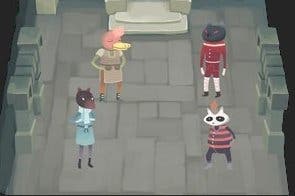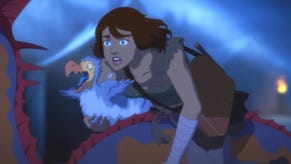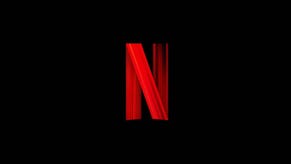Spaceteam dev launches Kickstarter for new free games
Multiplayer mobile title downloaded 1.6 million times, but only made $26K.
Henry Smith, developer of Spaceteam - the wonderful local multiplayer mobile game in which players yell at each other to hit buttons under time pressure - has launched a Kickstarter to develop a host of free games over the next year.
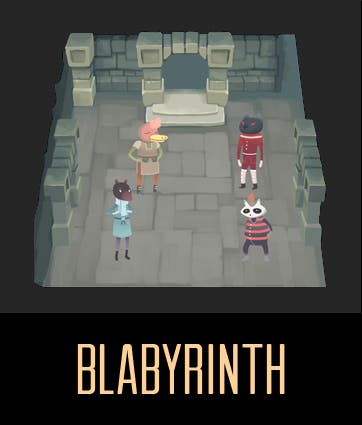
That's right: rather than fund one specific game, Smith - who used to work at places like BioWare and Irrational Games on such titles as Dragon Age: Origins, Dead Space 2, and Mass Effect 3 - isn't looking to make one specific project, but rather acquire the funds to support himself while he develops multiple free games.
A couple of these proposed titles have already been teased. One is a local co-op mobile game called Blabyrinth that Smith said is influenced by the board game Escape: The Curse of the Temple, Spelunky, Indiana Jones, and old games shows like The Crystal Maze and Knightmare.
Another planned title is Shipshape, a single-player mobile game about exploring the cosmos with a spacecraft comprised of modular components. It's inspired by Escape Velocity, Star Control 2, and board game Galaxy Trucker.
Those who donate to the Kickstarter will be part of what's called the Spaceteam Admiral's Club, which comes with a host of perks based on how much one pledges. These range from digital soundtracks, to ringtones, to putting your own words in the game and designing characters.
Smith is experimenting with this model because he knows Spaceteam has a large audience, but it perhaps wasn't monetised optimally as a free release. As of now Spaceteam has been downloaded 1,684,470 times across all platforms, but its sales gross was only $19,720 - though Smith told Eurogamer in a Skype interview that he also made €5K from Spaceteam winning a prize at a festival. He noted that the game only took about four or five months to develop, but then he spent another six-to-eight months touring festivals to promote the game and give talks, so he's essentially devoted about a year to this one title and $26K is not quite enough to be sustainable.
"One of the reasons I'm doing this Kickstarter campaign is because it's not quite enough for me to live on yet, so I'm trying to find other ways that this audience of millions of people who have downloaded Spaceteam can help me continue to make games," he told us.
When asked about this peculiar model, Smith said, "A lot of people thought it was against Kickstarter rules because it is a bit of a grey area. Kickstarter likes things to be projects. They don't want people to do 'fund my life' kind of things. But mine was quite explicitly a 'fund my game development.' There are few precedents for things like this."
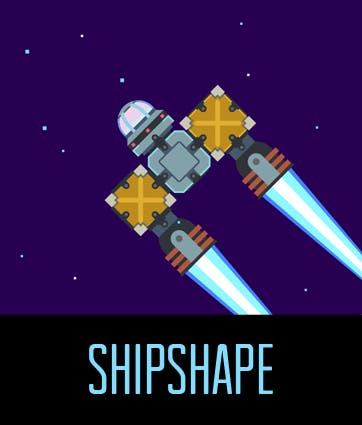
"Part of the philosophy of the campaign is if it succeeds I'd like to set it as a precedent for other people to do the same thing," he added. "I think it's a much more sustainable way for making games. It could lead to more innovation and diversity. I'm still going to try to fight for these things even if the campaign fails."
This is a very real possibility as it's only reached $38,530 Canadian of its $80,000 CAD goal with the campaign ending this Friday. These things tend to explode in their final days, but it's still a long shot. Smith isn't worried, however, as he chalks the whole thing up as a learning experience.
"Even if it fails, I'll still have had a lot of exposure for Spaceteam itself and I'll have a justification for charging money for games in the future, because I'll be able to say 'I tried it for free and people weren't really paying money for it yet'. I may transition to Patreon or Indiegogo or one of these other crowdfunding sites," he explained. "I'd love to continue offering these rewards and continue the Spaceteam Admirals' Club in some form, even if I don't reach the goal. Or I might just try to do the campaign again after I've thought about it a bit more and planned a better PR campaign for it."
Regardless of how things go with this campaign, Smith is committed to the idea of funding specific developers to be creative on their own, rather than donating to specific projects. "Some of my favourite indies made games that aren't really marketable. They don't have super broad appeal and they might not look super flashy, but I think they're incredibly important. I'd like to pay them just to keep making stuff," Smith said. "I just want them to keep making crazy things with the freedom to make those choices. I think this makes much more sense to me as a business model."
